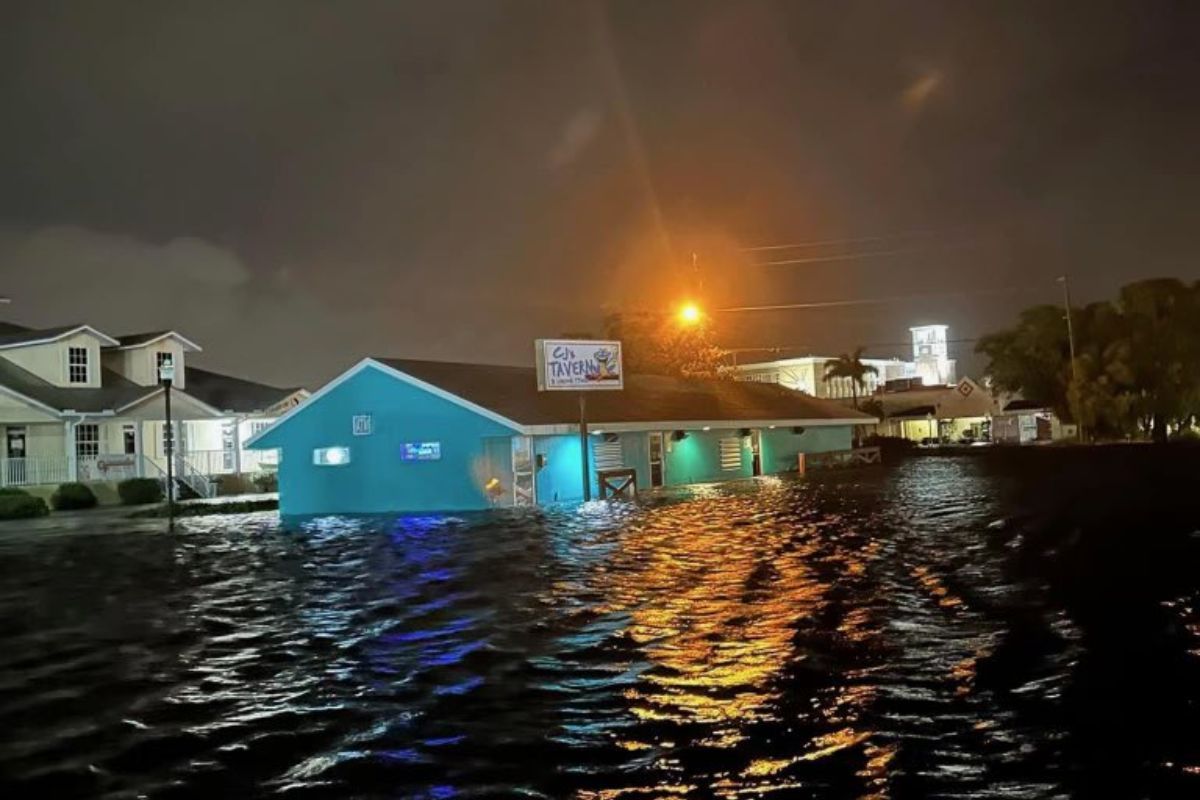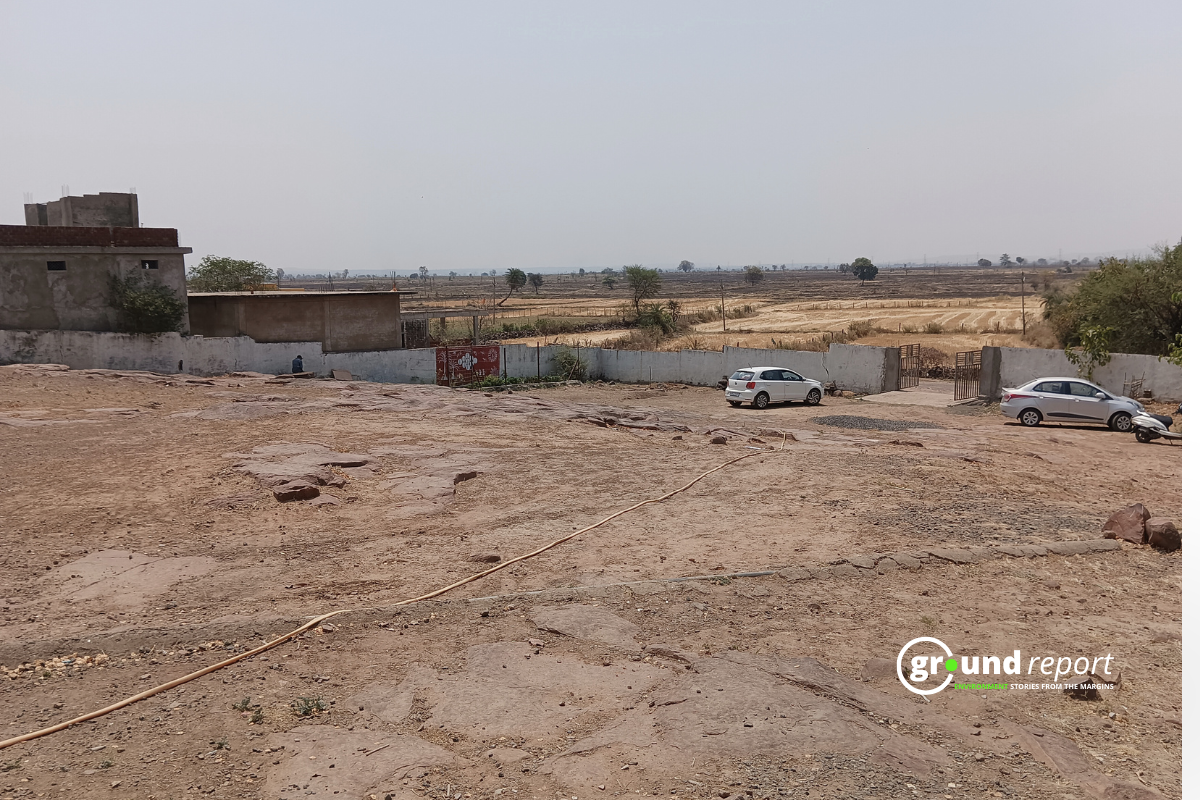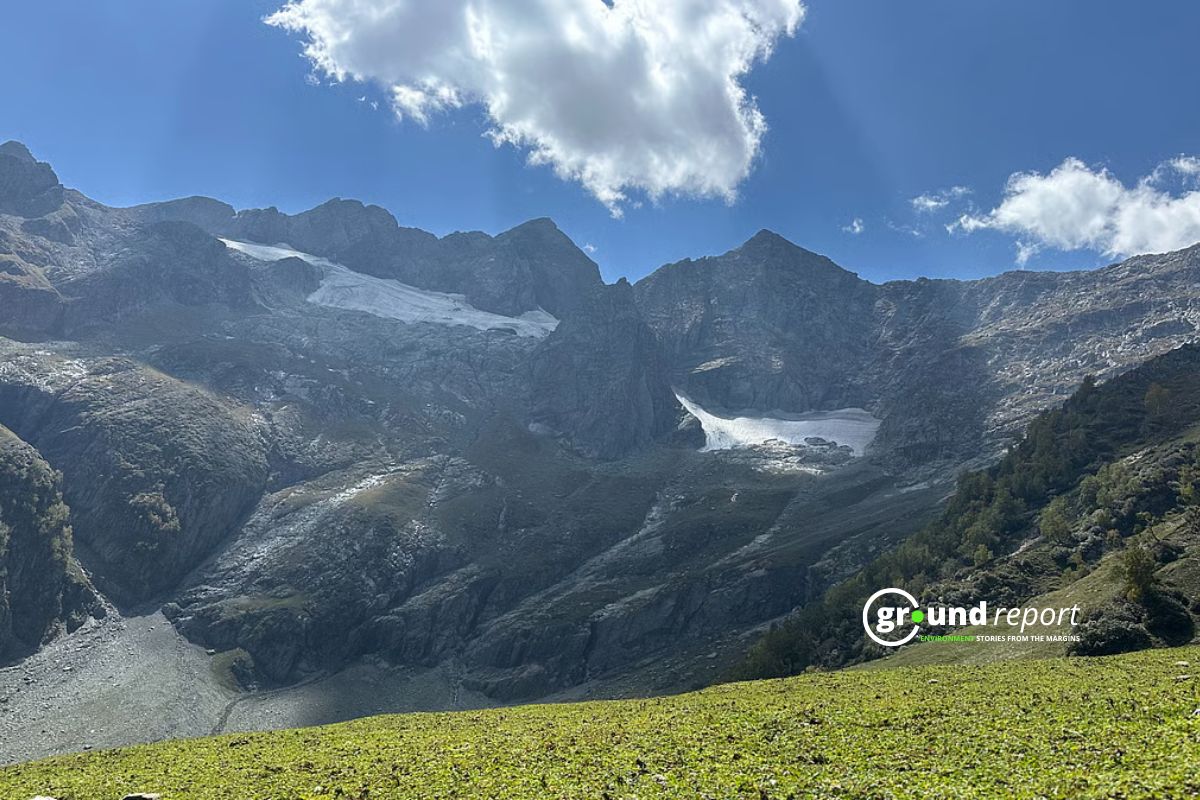Hurricane Helene, a Category 4 storm, will hit Florida’s Gulf Coast late Thursday. Authorities warn of life-threatening storm surges up to 20 feet (6 meters) in Florida’s Big Bend region. The storm has a large wind field, with winds reaching 275 miles (440 km) from its center, leading the National Weather Service (NWS) to label Helene an unusually large and dangerous storm.
Category 1 to Category 4 in under 12 hours #Helene pic.twitter.com/G5dWLWqwAh
— Zoom Earth (@zoom_earth) September 26, 2024
What is a Storm Surge?
When atmospheric pressure changes cause a hurricane’s winds to push ocean water onto land, a storm surge occurs. As the storm approaches, the shallower continental shelf can amplify this effect, creating a destructive surge.
The weight of water during a surge is significant—about 1,700 pounds (770 kg) per cubic yard—allowing it to sweep away vehicles, uproot trees, and damage structures. Even six inches of fast-moving water can knock an adult off their feet. Storm surges become more hazardous when they coincide with high tide.
INSANE video of storm surge impacts near Fort Myers, FL. Residents in Fort Myers and surrounding areas can anticipate 3-5 feet of storm surge. #FLwx pic.twitter.com/Ux8snKQyJX
— WeatherNation (@WeatherNation) September 26, 2024
What will Hurricane Helene’s impact be?
The NWS warned of “catastrophic and deadly storm surges” expected to inundate parts of the Florida Big Bend coast, with levels reaching 20 feet above ground. The storm will also produce damaging winds, heavy rainfall, and flash floods across much of the southeastern US.
Jeeze, that’s someone’s living room in St. Petersburg, Florida 😳pic.twitter.com/JCGMdgBCV8
— Volcaholic 🌋 (@volcaholic1) September 27, 2024
Florida Governor Ron DeSantis cautioned that power outages could last days or weeks near the landfall. With schools and airports in affected regions suspending operations, Helene is expected to disrupt daily life.
In anticipation of the storm, schools in Southwest Florida are closing. Collier, Lee, and Charlotte County schools will close, along with Florida Gulf Coast University and Florida SouthWestern State College, which are transitioning to remote operations. Airlines have cancelled over 1,000 flights, affecting major airports like Tampa and Orlando.
Governors in Florida, Georgia, the Carolinas, and Virginia have declared states of emergency, urging residents to prepare for the storm’s impact. Officials warn of potential widespread power outages, infrastructure damage, and severe flooding far beyond Florida’s coast. North Carolina Governor Roy Cooper is particularly concerned about heavy rainfall and flash flooding in mountainous areas.
How is climate crisis a factor?
The warming of ocean waters in the Gulf of Mexico has contributed to Hurricane Helene’s rapid intensification, as it has with many other recent storms in Mexico waters. This trend is linked to the climate crisis, as higher sea surface temperatures create ideal conditions for hurricanes to strengthen quickly. Since the 1970s, the frequency of Category 4 and 5 storms has roughly doubled in the North Atlantic.
Some reports suggest parts of Florida may see a storm surge of up to a staggering 20ft because of Hurricane Helene. 😳 Good explainer of storm surges here pic.twitter.com/0jmzxJ4VL4
— Matthew Todd 🌏🔥 (@MrMatthewTodd) September 25, 2024
Phil Klotzbach, a hurricane specialist at Colorado State University, noted, “Historically, hurricanes intensified at a slower rate, but now they’re strengthening much faster, a dangerous trend linked to rising ocean temperatures.”
Before the storm’s landfall, Florida’s Taylor County Sheriff’s Office warned residents who chose not to evacuate to write their names and important information on their arms in permanent markers for identification in case of a tragedy. Such warnings underscore the situation’s gravity and potential loss of life.
Search-and-rescue teams are staged across Florida’s Big Bend region and beyond, with federal authorities preparing for a large-scale response in the storm’s aftermath. “The surge scenario could be a nightmare for this region,” said the NWS.
As residents brace for impact, many in the Southeastern US are counting the potential cost of this storm. Helene is the fourth hurricane to hit the US this year and the second major storm to strike Florida. With damages from recent hurricanes mounting, experts warn the climate crisis will make such storms more frequent and severe in the future.
Support us to keep independent environmental journalism alive in India.
Keep Reading
Khadi Haat village’s power-free wastewater treatment solution and more
How much wastewater is being reused in Delhi?
Follow Ground Report on X, Instagram and Facebook for environmental and underreported stories from the margins. Give us feedback on our email id greport2018@gmail.com.
Don’t forget to Subscribe to our weekly newsletter, Join our community on WhatsApp, and Follow our YouTube Channel for video stories.








